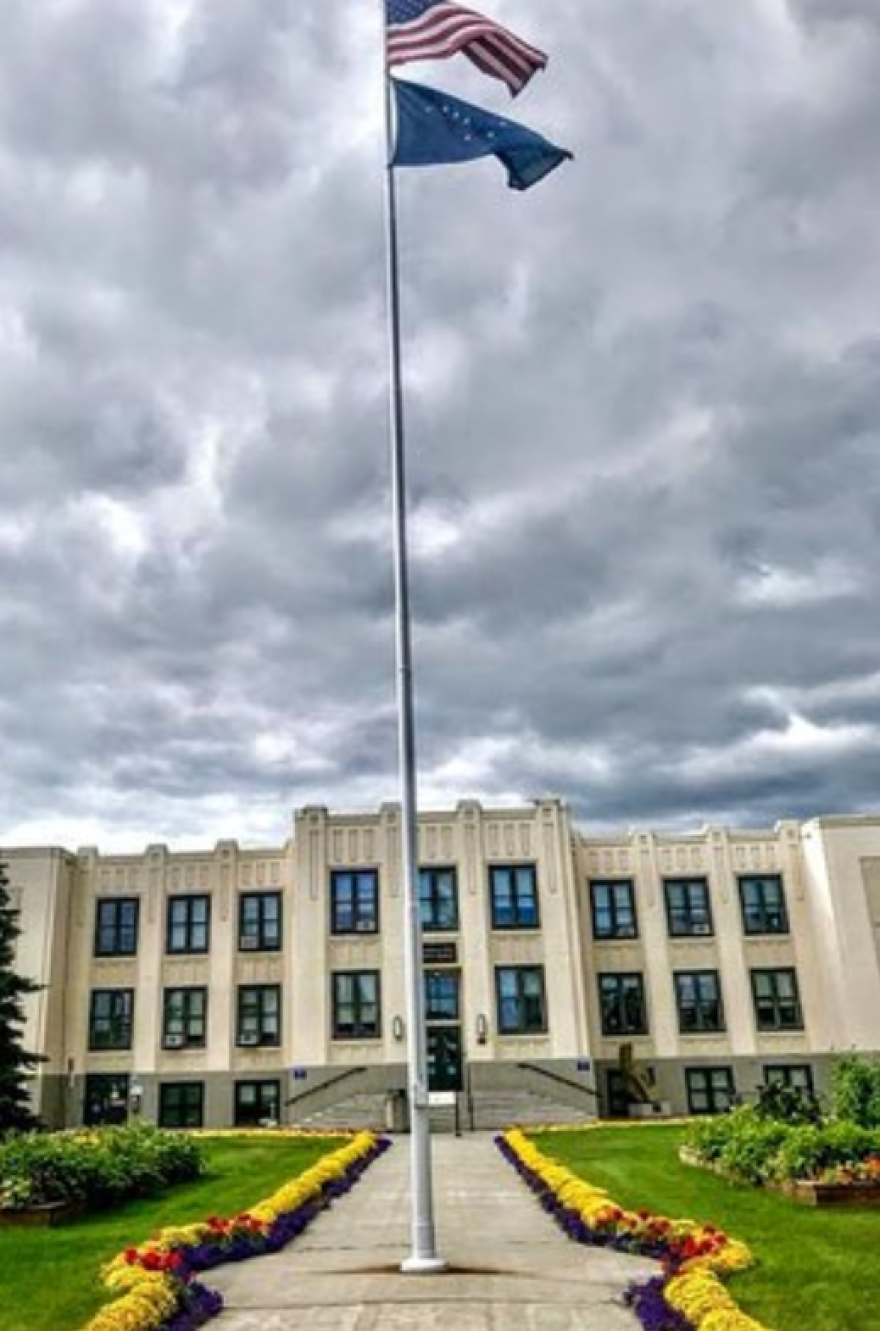The Fairbanks City Council has finally declared its support for overriding Governor Mike Dunleavy's budget-cutting vetoes. The council and Mayor Jim Matherly had been under mounting public pressure to take a stand on the issue since Dunleavy announced his vetoes on June 28. They heard more pleas Monday from members of the public and two candidates running to replace Matherly.
Backers of the legislative attempt to override Dunleavy’s vetoes have been trying to marshal as much support as possible in the lead-up to today’s vote. That’s why Paige Poston and others who spoke during Monday’s City Council meeting made one last attempt to get the City of Fairbanks on record on supporting the longshot strategy.
“I haven’t seen as of yet a statement from the mayor’s office or from the council,” Poston said, “and I really just wanted to urge you guys to put something together, put something out, because it’s going to devastate our city.”
Julie Smith is a single mom and client of the state’s Permanent Supportive Housing program, which helps people in need find a decent place to live while they’re getting themselves back on their feet. Smith says she and others in the program will be hard-hit if the Legislature fails to override Dunleavy’s budget vetoes, which she says will cut 75 percent of the its funding.
“Some of my neighbors have a hard time just finding enough food to eat,” Smith said.
But former borough Assembly member Lance Roberts says the needy don’t have to depend on publicly funded social services. He says they can always ask for help from churches or volunteer organizations. And he says the City Council or mayor should not offer any sort of public pronouncement of opposition to the governor’s cuts, because they’re necessary due to what he says is an unsustainable state budget.
“Thankfully,” Roberts said, “we now have a governor who recognizes that, and is trying as hard as he can to turn this ship around.”
Two Fairbanksans who are running to unseat Matherly see it differently. Lakesha Jordan told council members they must express the anger and frustration being felt both by the people who runs state social-service programs and those they seek to help.
“From what I’ve seen, our community is outraged, for valid reasons,” Jordan said.
Kathryn Dodge, a former borough Assembly presiding officer, said it’s essential for the mayor and council to speak out, both to represent city residents’ concerns over the cuts and to help convince lawmakers to overturn them.
“I believe the vetoes, if left to stand, will decimate our state,” Dodge said. “They tear at the very foundation of who we are as a culture, and as a society.”
Dodge said even though there’s not much time, the council and mayor should still prepare a statement expressing support for the override. A few minutes later, during the mayor’s comments part of the meeting, Matherly declared he’s ready to speak out on the issue.
“I want to join many other Alaskan voices in supporting the overrides of the governor’s vetoes,” he said.
The mayor says he hasn’t commented yet because he’s been talking with city residents and lawmakers about the vetoes and studying their impact on local and state services.
“I did not post anything, on social media or anything else,” Matherly said, “though I was asked to do it – and there were a lot of people angry with me that I did not do it.”
Council member Valerie Therrien suggested the council should quickly put together a statement supporting the override. Members decided later in the meeting on a measure directing the mayor to send a letter to the Legislature Tuesday stating the city government’s support for the effort. The measure passed 4-to-2, with Jerry Cleworth and David Pruhs voting no.



